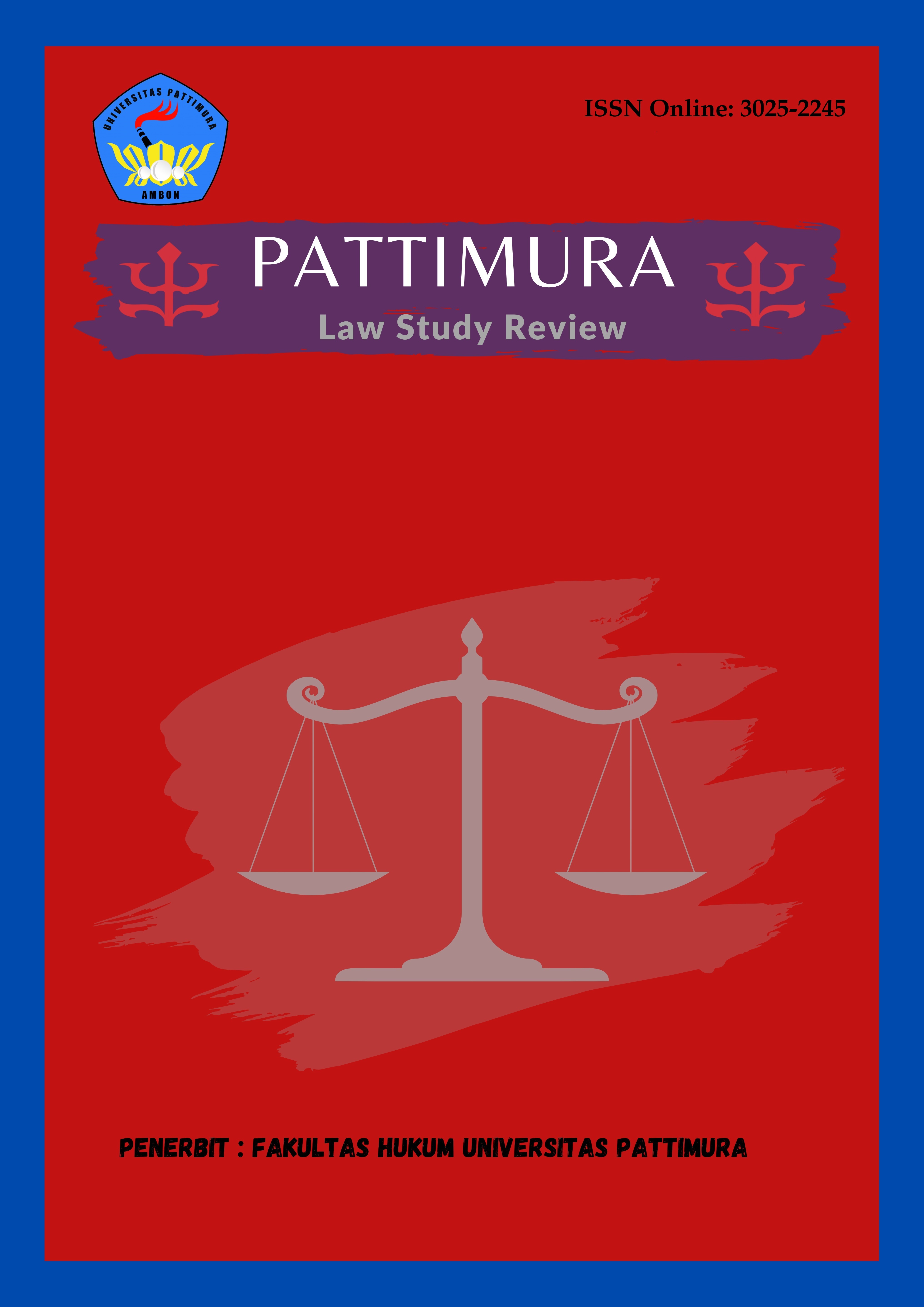Kewenangan Pemerintah Daerah Terhadap Penertiban Tanah Terlantar
Abstract
Objects located on land above the surface of the earth have the right to regulate them. This is in accordance with the mandate of the provisions of Article 33 paragraph (3) of the 1945 Constitution of the Republic of Indonesia. Land can function well or have no right to use depending on how responsible the government and society are in managing the land. However, in reality there is a major polemic that arises regarding state land that is given to rights holders that are not used properly or are neglected for years. The purpose of this study is to determine and discuss the authority of the regional government in handling abandoned land and the form of legal protection for rights holders of abandoned land. The research method used in this writing is the normative legal research method with a statutory approach, case approach and conceptual approach, to answer the problems raised. The results of this study are that the Authority of the Regional Government in Handling Abandoned Land is carried out by the Head of the BPN Regional Office assigning the Head of the Land Control and Community Empowerment Division as the coordinator to prepare data and information regarding land indicated as abandoned (based on Article 8 paragraph (2) of the Regulation of the Head of the BPN RI No. 4 of 2010). For the implementation of data and information preparation activities in the field (land rights objects/basis for land control), the Head of the BPN Regional Office notifies the rights holders in writing that within a specified time, identification and research will be carried out until the stage of determining abandoned land. And the form of legal protection for rights holders of abandoned land is carried out both preventively and repressively. However, the most effective form of legal protection to be applied to this problem is the form of repressive legal protection on the grounds that there have been many violations of land abandonment in various regions in Maluku, one of which is Kandar Village. So that in order to strengthen land regulations, it is necessary to enforce repressive legal protection in the form of written warnings, administrative fines to pay compensation, revocation and transfer of land rights, and supervision of land control. With this, there is legal certainty that can be provided for the state, government and other communities who need land and their rights can be fulfilled based on the rule of law.
Downloads
References
Anon, Teori-Teori Perlindungan Hukum Menurut Para Ahli Di Indonesia, Dalam situs https://www.hukumonline.com/berita/a/teori-perlindungan-hukum-menurutparaahlilt63366cd94dcbc/, Diakses Pada 25 Februari 2025.
Farhan Zarbiyani Dan Amad Sudiro, Penetapan Tanah Terlantar Sebagai Bentuk Perlindungan Dan Kepastian Hukum Dalam Penerbitan Tanah Terlantar, Unes Law Review, Jakarta, 10 Desember 2023.
Fendy Setiawan dkk. Kewenangan Badan Pertanahan Nasional Dalam Penertiban Dan Pendayagunaan Tanah-Tanah Terlantar. HUKMY, Jurnal Hukum Vol III. No. 1, April 2023.
Gunanegara, Tanah Terlantar Melanggar Hukum; Catatan Sejarah Hukum, Latar Belakang, Dan Penegakan Hukum, Penertiban Tanah Terlantar.
Jerry Haposan, Penerbitan Dan Pendayagunaan Tanah Terlantar, Yogyakarta, 2013.
Maria S.W. Sumardjono, Kebijakan Tanah : Antara Regulasi dan Implementasi, Cetakan 1, Jakarta Kompas, 2001.
Muhammad Bakri, Hak Menguasai Tanah Oleh Negara: Paradigma Baru Untuk Reforma Agraria, Penerbit Universitas Brawijaya Press (UB Press), Malang, 2011.
Muhibbin, Moh. Penguasaan atas tanah timbul ( aanslibbing ) oleh masyarakat dalam perspektif hukum Agraria Nasional, Ringkasan Disertasi, Program Doktor Ilmu Hukum Fakultas Hukum Universitas Brawijaya 2011.
Novyta Uktolseja dan Pieter Radjawane, Tinjauan Juridis Perkembangan Tanah-Tanah Adat (Dahulu, Kini dan Akan Datang), Volume 25 Nomor 1, Januari - Juni 2019, Fakultas Hukum Universitas Pattimura 2019.
Renny H Nendissa, Kewenangan Pemerintah Kota Dalam Kerjasama Dengan Pihak Swasta, Yogyakarta, 2021.
Rusmadi Murad, Administrasi Pertanahan: Pelaksanaan Hukum Pertanahan Dalam Praktek, Penerbit Cv Mandar Maju, Indonesia 2013.
S. F. Marbun, Peradilan Administrasi Negara dan Upaya Administrasi di Indonesia, (Liberty 1997).
Suparji dan Roro Wanda Ayu D.A, Hak Penguasaan Atas Tanah Reklamasi Pantai, Penerbit Program Studi Ilmu Magister Ilmu Hukum Pascasarjana, Universitas Al Azhar Indonesia, Jakarta 2018.
Supriyanto, Kriteria Tanah Terlantar Dalam Peraturan Perundangan Di Indonesia, Jurnal Dinamika Hukum Vol .1 No.10, Jawa Tengah: Fakultas Hukum Universitas Jenderal Soedirman Purwokerto, 2010.
Suriansyah Murhani, Kewenangan Pemerintah Dalam Mengurus Bidang Pertanahan, Laksbang Justitia 2009.
Urip Santoso, Kewenangan Pemerintah Kabupaten/Kota Dalam Bidang Pertanahan, ADIL: Jurnal Hukum, Volume 3 No 2, 2011.
CB_Juni-1_Mila_120-Hektar-tanah-terlantar_20210729164619.pdf (diakses pada 13 Oktober 2024)
Copyright (c) 2025 Novanda Halirat, Renny Heronia Nendissa, Novyta Uktolseja (Author)

This work is licensed under a Creative Commons Attribution-NonCommercial 4.0 International License.
Authors who publish their manuscripts in this Journal agree to the following conditions:
- The copyright in each article belongs to the author, as well as the right to patent.
- Authors are able to enter into separate, additional contractual arrangements for the non-exclusive distribution of the journal's published version of the work (e.g., post it to an institutional repository or publish it in a book), with an acknowledgment of its initial publication in this journal.
- Authors are permitted and encouraged to post their work online (e.g., in institutional repositories or on their website) prior to and during the submission process, as it can lead to productive exchanges, as well as earlier and greater citation of published work.
- Authors have the right to self-archiving of the article (Author Self-Archiving Policy)













